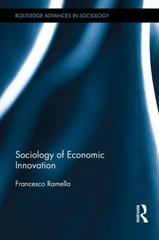Question
Suppose that the demand for San Francisco cable car rides is = 10,000 1,000, where is the price per ride and is the number of
Suppose that the demand for San Francisco cable car rides is = 10,000 1,000, where is the price per ride and is the number of rides per day, and that the objective of San Francisco's Municipal Authority (the cable car operator) is to maximize its revenues. What is the revenue-maximizing price? Suppose that San Francisco calculates that the city's businesses benefit from tourists and residents riding on the city's cable cars at $5 per ride. If the city's objective is to maximize the sum of the cable car revenues and the economic impact, what is the optimal price?
This bolded portion of the question was not answered HELPFULLY the last time I asked it. I was told "the optimal QUANTITY is the same. Therefore the city does not benefit at price $5" This explanation does not make any sense to me.
Answer so far:
P(Q) = 10 0.001Q
MR = 10 0.002Q
To get the revenue maximizing quantity for a monopoly, set the Marginal Revenue equal to 0
0 = 10 0.002Q
0.002Q = 10
Q = 5, 000
Plug the profit maximizing quantity into the inverse demand equation to find the optimal price
P(Q) = 10 0.001(5000)
P(Q) = $5
Total Revenue
TR = PxQ
TR = 5,000 x 5 = $25,000
The revenue maximizing price is $5 per ride and the revenue maximizing quantity is 5,000 rides per day and generates a maximum revenue of $25,000.
Step by Step Solution
There are 3 Steps involved in it
Step: 1

Get Instant Access to Expert-Tailored Solutions
See step-by-step solutions with expert insights and AI powered tools for academic success
Step: 2

Step: 3

Ace Your Homework with AI
Get the answers you need in no time with our AI-driven, step-by-step assistance
Get Started


